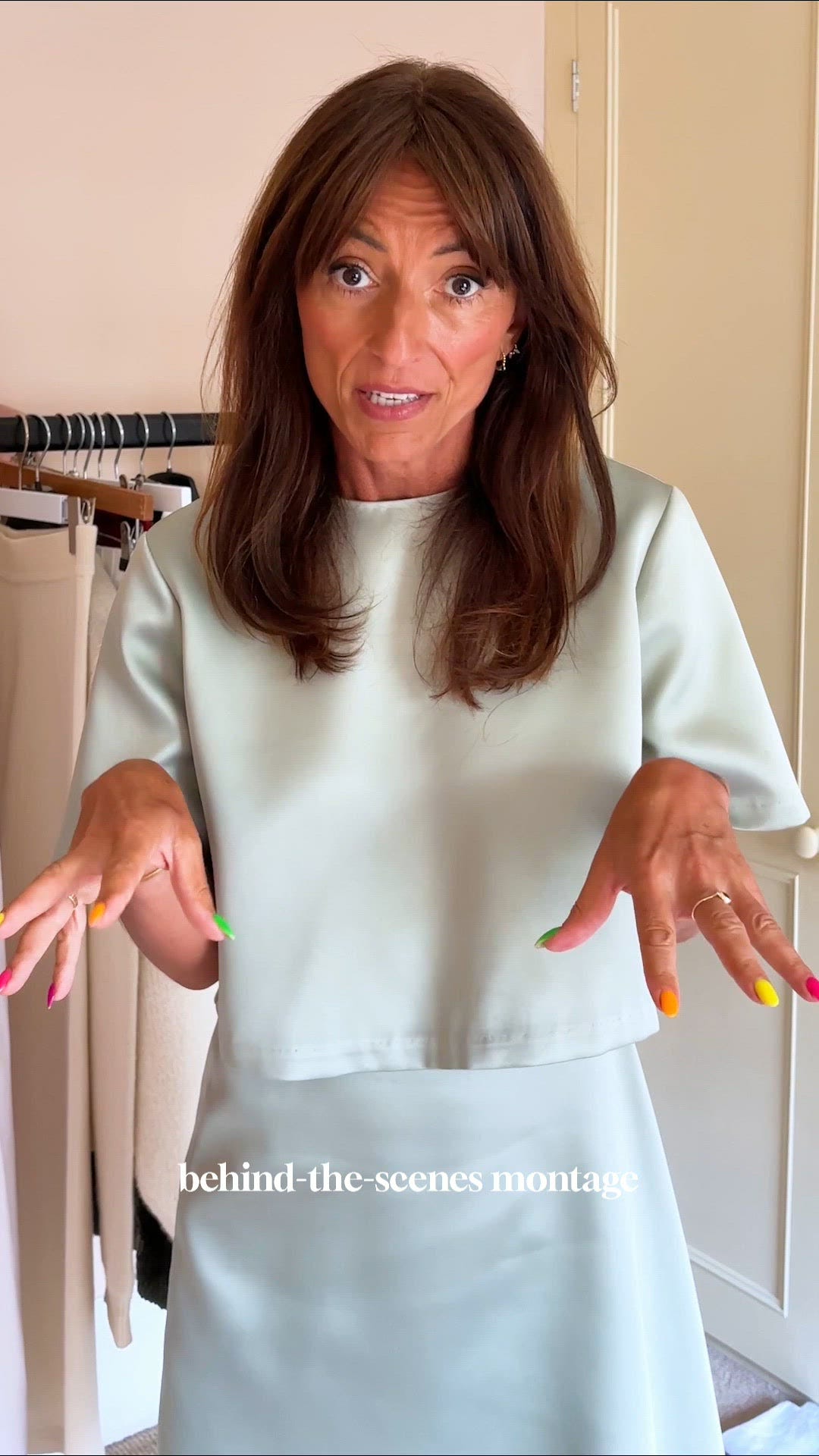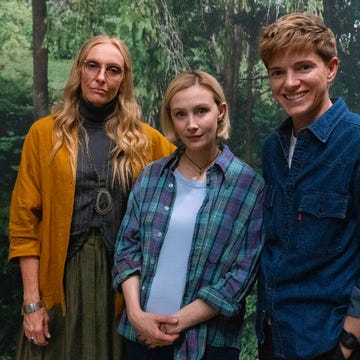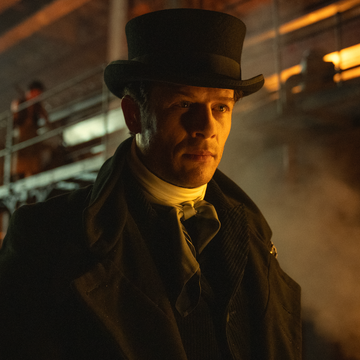“I think about my mortality all the time,” says Julianne Moore, as she sits opposite me in a plush, marble-lined suite at London’s Corinthia hotel. She leans in closely, as if she’s about to disclose a secret, before adding, “I try to do it as much as possible, because I think it’s the one thing that can make you feel most alive.”
It’s not, I might add, the sort of casual conversation one might expect to be having on a Friday lunchtime – but mortality is in fact the subject of the 63-year-old actor’s latest film, The Room Next Door. And if there’s a way of putting a positive spin on the topic of death, it seems that Moore is an expert at it.
The New York-set film is acclaimed Spanish director Pedro Almodóvar’s first English-language film, and when it premiered at the Venice Film Festival in September, it received an 18-minute standing ovation – one of the longest in recent memory.
What to read next
Adapted from Sigrid Nunez’s 2020 novel, What Are You Going Through, it tells the story of former war correspondent Martha (played by Tilda Swinton) who’s dying of cervical cancer and asks an old friend, Ingrid (Moore), to be with her – or, more specifically, in the room next door – when she ends her life. “I think I deserve a good death,” Martha tells her friend, revealing that she’s got hold of an illegal euthanasia pill.
It’s a delicate tale that sees Moore’s character, Ingrid, grapple with the weight of such a responsibility, as well as her own fear of death. “Don’t you want someone closer?” she asks Martha, having only recently reconnected with her friend after several years apart. You can feel the depth of Ingrid’s discomfort, and yet after some thought, she agrees, travelling to a secluded cabin upstate where Martha will end her life in peace.
“She shows up,” Moore says now, when I ask if she could imagine making such a decision herself. “And I think that whenever anybody is in a real crisis, in a terrible spot, there isn’t really a lot we can do for one another except be with them, just accompany them, be a witness to their life, help them out, make them lunch.
“And, actually, you never know who it’s going to be,” she muses. “Sometimes the person that you most expect to show up doesn’t, and then you’re like, ‘Oh.’ I think that’s a bigger deal in friendships than we often realise. In my own life, showing up is about calling somebody up and saying, ‘Are you okay? Do you want to go for a walk, or can I take you to lunch?’ or ‘I’m going to sit next to you’ – any of those things. Having a conversation with somebody, checking on somebody, all of that – that’s the stuff of friendship. It’s not the doing, not the, ‘Let’s go to the movies!’”
The right to choose
The film makes a clear case in favour of legal euthanasia and assisted dying, and it’s particularly timely, given a new bill has recently been introduced in parliament calling for terminally ill people in England and Wales to be given the right to choose to end their life. While Moore talks cautiously about the subject, she says that for her, the key is being able to have a choice.
“I think what I am is pro human rights. I think it’s important that we have freedom over our own bodies. That we have the right to choose how we live, how we reproduce, our own health, who we love, all of those things.
“The issue of human rights sort of ebbs and flows throughout the world and throughout history, but I hope we’re making progress towards people having agency over their own lives.”
Does she believe, then, that what Martha gets – the opportunity to die on her own terms – is indeed a ‘good death’? “I think she does get what she wanted,” Moore says thoughtfully, “because she’s in control of it. And that’s all that any of us can really ask for.”
Love and loss
For a story that deals with such a heavy subject, there’s a surprising amount of joy to be found within it. As they rekindle their friendship, Martha teaches Ingrid to see that “there are many ways to live within a tragedy”; in the weeks leading up to Martha’s death, they listen to birdsong each morning, they enjoy film nights and they laugh together, even in the darkest moments.
“That’s the beauty of realising your impermanence,” says Moore. “Particularly as you get older, you have much more experience with mortality – you lose friends and parents – and you think about it a lot more. I certainly do.
“But there’s a Tibetan saying: ‘When I understand that the glass is already broken, every moment with it is precious’ – and that can really give you some relief. When you reflect on the fact that we’re only here for a fleeting moment, the things that might seem challenging or impossible can dissolve – and you can treasure life that bit more.”
I wonder if Moore’s positive outlook offers some comfort when it comes to dealing with loss in her own life. In 2009, her Scottish-born mother, Anne, with whom she was very close, died suddenly following an embolism. She was just 68 at the time and Julianne was on a plane on her way to her when she passed away.
“Grief is one of those things that stays with you,” she says now. A long pause follows as tears begin to fill her eyes. “I haven’t found any ways to make it easier. It doesn’t leave you, does it? The one thing I do know about grief is that it’s about love – and how much you love that person – and that doesn’t ever go away.”
Finding joy
Love, Moore explains, is also what she believes to be the cornerstone of happiness, and her family – her director husband Bart Freundlich and their two children, Caleb, 26, and Liv, 22 – are central to that. “My work and my family are what make me feel most alive,” she says.
“It’s like what Freud says: it doesn’t matter who you love or what you love, if there’s something or someone that you love a lot, and if there’s work – it doesn’t have to be paid work, it can just be some activity that really gives you kind of some joy and some purpose – that’s really what everybody needs.”
Are there certain activities she finds joy in now? “I love my pottery,” she smiles. “That’s something I’ve discovered in the last couple of years, and what I enjoy about it is the fact that I don’t really take it very seriously; it’s something physical that I can do, but I don’t worry too much about the outcome!
“I feel the same way about yoga. I’ve probably been an intermediate yogi for the last 25 years. People are like, ‘Oh, that’s not possible,’ and I’m like, ‘It is possible.’ I don’t improve that much; I just sort of do it, but the doing of it brings me a lot of peace of mind.
“So, truthfully? A really great day is one where I get up, do some yoga, then I might listen to my audiobook while I walk the dog – and then I go and do some pottery! That’s really how I find the joy in life.”
The Room Next Door is in cinemas in the UK and Ireland on 25 October.

















